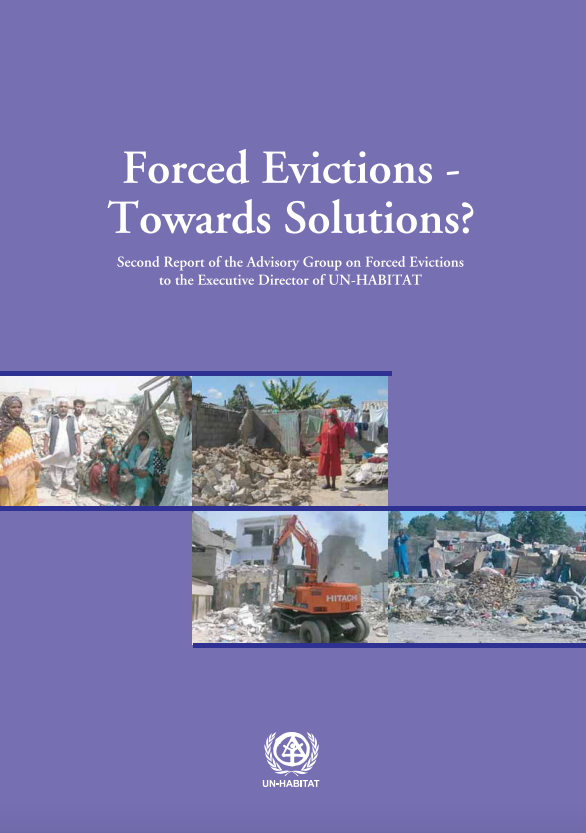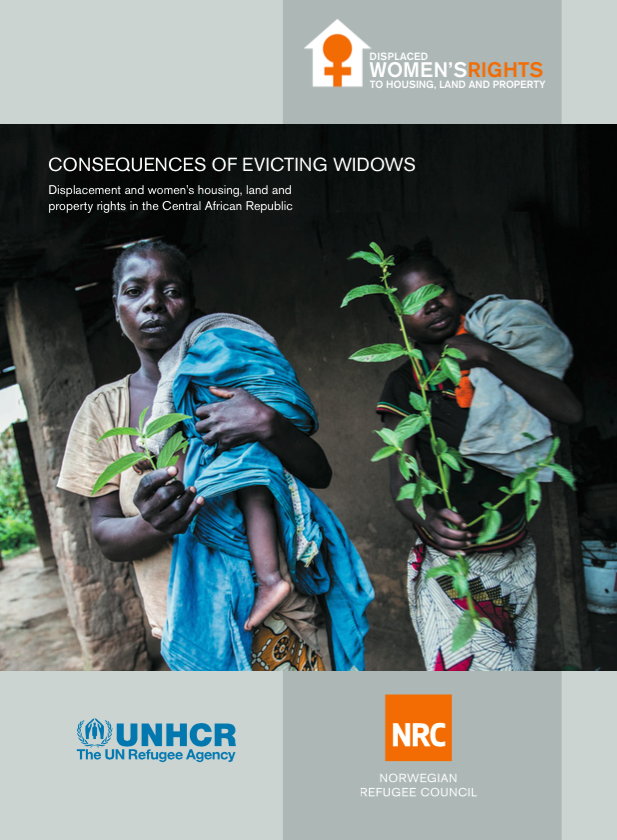Forced Evictions - Towards solutions?
This publication is the second report of the Advisory Group on Forced Evictions (AGFE) to the Executive Director of UN-Habitat. It contains follow-up information on eviction cases documented in the first report, 15 new cases, and a detailed analysis of the current global situation regarding forced evictions and successful counterstrategies, methodologies and tools to stop and prevent forced evictions.




